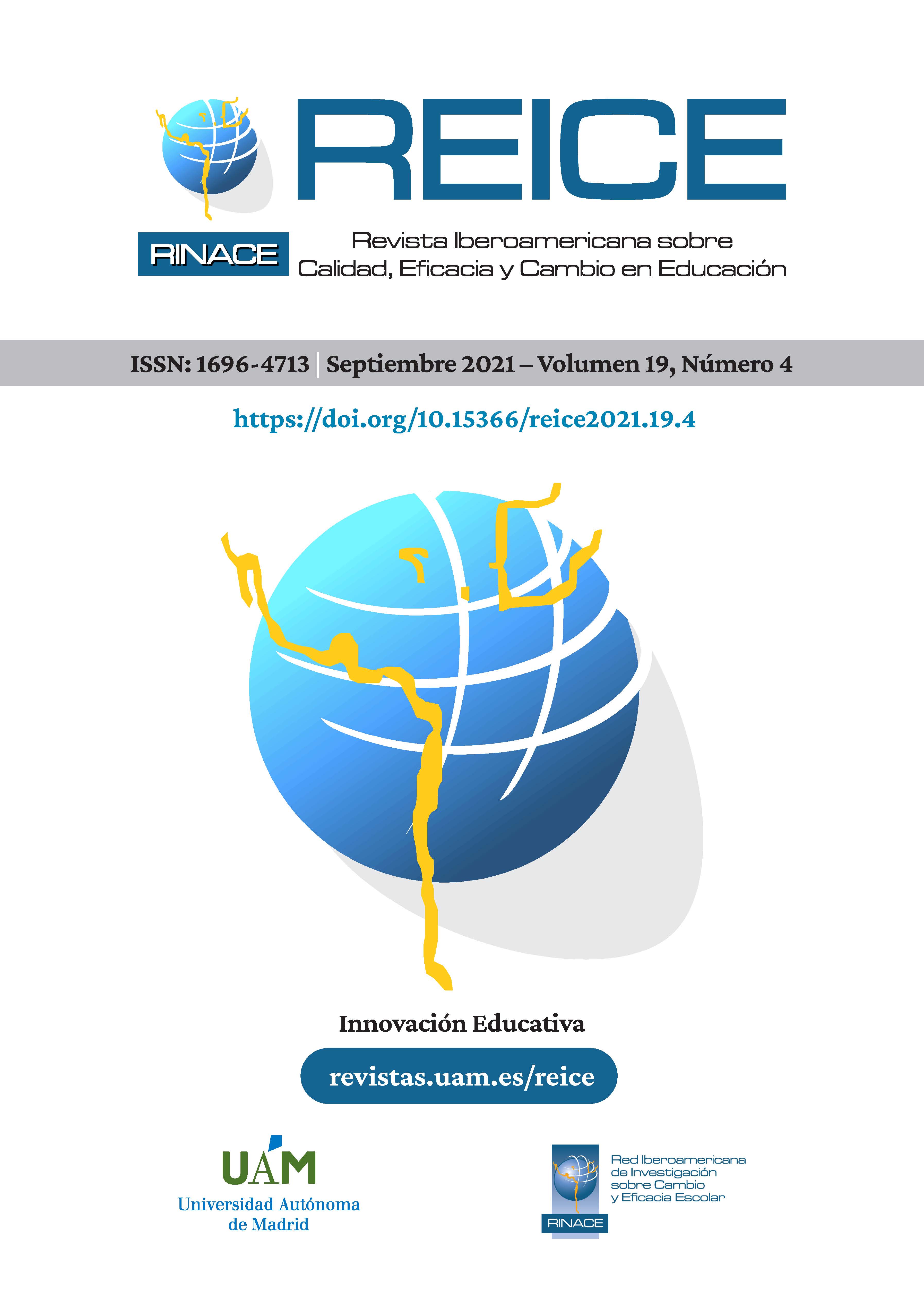“Google” Techno-Educational Innovation. Digital Platforms, Data and Teacher Training
Keywords:
Educational innovations, Educational technology, Digital platforms, Data, Teacher training
This work is licensed under a Creative Commons Attribution-NonCommercial-NoDerivatives 4.0 International License.
Abstract
Digital platforms are generating the most significant advances in global educational innovation. The global pandemic of Covid-19 is accelerating the expansion of digital platforms in education. Google is the technology corporation that, through Google for Education, is leading educational innovation through its digital platforms. In this context, the objective of this article is to analyze innovation in educational practices and teacher training through Google's digital platforms. From a qualitative approach based on the implementation of a digital ethnography and a technography, eight Google websites related to teacher training and data have been analyzed in depth. The results of the study show that, through the Classroom API (1) new techno-educational control processes are being generated, (2) new extractive dynamics of data and (3) new relationships are forming with the technology industry. Alongside this, it is observed that teacher training for techno-educational innovation in Google is based on pyramidal professional development, through teaching certifications, and on “Google educational communities” that are self-formed and expand the tools and market logics of this technology corporation.
Downloads
References
Birch, K. (2019). Technoscience rent: Toward a theory of tentiership for technoscientific capitalism. Science, Technology, & Human Values, 45(1), 3-33. https://doi.org/10.1177/0162243919829567
Birch, K., Chiappetta, M. y Artyushina, A. (2020). The problem of innovation in technoscientific capitalism: Data rentiership and the policy implications of turning personal digital data into a private asset. Policy Studies, 41(5), 468-487. https://doi.org/10.1080/01442872.2020.1748264
Bucher T. (2016). Neither black nor box: Ways of knowing algorithms. En S. Kubitschko y A. Kaun (Eds.), Innovative methods in media and communication research (pp. 81-89). Palgrave Macmillan. https://doi.org/10.1007/978-3-319-40700-5_5
Bucher, T. (2018). If...then: Algorithmic power and politics. Oxford University Press.
Couldry, N. y Mejias, U. A. (2019). Data colonialism: Rethinking big data’s relation to the contemporary subject. Television & New Media, 20(4), 336-349. https://doi.org/10.1177/1527476418796632
Decuypere, M., Grimaldi, E. y Landri, P. (2021). Introduction: Critical studies of digital education platforms. Critical Studies in Education, 62(1), 1-16. https://doi.org/10.1080/17508487.2020.1866050
Google. (2021a). Google classroom. https://edu.google.com/intl/en-eu/products/classroom/
Google. (2021b). API-classroom-authorizing requests. https://developers.google.com/classroom/guides/auth
Google. (2021c). API-classroom-manage. https://developers.google.com/classroom/guides/manage-guardians
Google. (2021d). Apps that work#withClassroom. https://edu.google.com/intl/en-eu/products/classroom/apps/
Google. (2021e). Google for education. https://edu.google.com
Google. (2021f). Teacher center. https://edu.google.com/intl/en-eu/teacher-center/?modal_active=none
Google. (2021g). Google for education-partnes. https://edu.google.com/partners/
Google. (2021h). Google for education-communities. https://edu.google.com/latest-news/communities/
Groß, C. y Vriens, D. (2019). The role of the distributor network in the persistence of legal and ethical problems of multi-level marketing companies. Journal of Business Ethics, 156(2), 333-355. https://doi.org/10.1007/s10551-017-3556-9
HolonIQ. (2021). Global EdTech unicorns. https://www.holoniq.com/edtech-unicorns/
Ideland, M. (2021). Google and the end of the teacher? How a figuration of the teacher is produced through an ed-tech discourse. Learning, Media and Technology, 46(1), 33-46. https://doi.org/10.1080/17439884.2020.1809452
Jansen, K. y Vellema, S. (2011). What is technography? Wageningen Journal of Life Sciences, 57(3-4), 169-177. https://doi.org/10.1016/j.njas.2010.11.003
Jasanoff, S. y Kim, S.-H. (2009). Containing the atom: Sociotechnical imaginaries and nuclear power in the United States and South Korea. Minerva, 47(2), 119-146. https://doi.org/10.1007/s11024-009-9124-4
Komljenovic, J. (2021). The rise of education rentiers: Digital platforms, digital data and rents. Learning, Media and Technology. https://doi.org/10.1080/17439884.2021.1891422
Latour, B. (2005). Reassembling the social: An introduction to actor-network-theory. Oxford University Press.
Lindh, M. y Nolin, J. (2016). Information we collect: Surveillance and privacy in the implementation of google apps for education. European Educational Research Journal, 15(6), 644-663. https://doi.org/10.1177/1474904116654917
Means, A. J. (2018). Platform learning and on-demand labor: Sociotechnical projections on the future of education and work. Learning, Media and Technology, 43(3), 326-338. https://doi.org/10.1080/17439884.2018.1504792
Moore, A. y Clarke, M. (2016). Cruel optimism: Teacher attachment to professionalism in an era of performativity. Journal of Education Policy, 31(5), 666-677. https://doi.org/10.1080/02680939.2016.1160293
Morozov, E. (2015). To save everything, click here: The folly of technological solutionism. PublicAffairs.
Perrotta, C., Gulson, K. N., Williamson, B. y Witzenberger, K. (2021). Automation, APIs and the distributed labour of platform pedagogies in Google Classroom. Critical Studies in Education, 62(1), 97-113. https://doi.org/10.1080/17508487.2020.1855597
Pink, S., Horst, H., Postill, J., Hjorth, L., Lewis, T. y Tacchi, J. (2016). Digital ethnography: Principles and practice. Sage.
Regan, P. M. y Jesse, J. (2018). Ethical challenges of edtech, big data and personalized learning: Twenty-first century student sorting and tracking. Ethics and Information Technology, 21(3), 167-179. https://doi.org/10.1007/s10676-018-9492-2
Sadowski, J. (2019). When data is capital: Datafication, accumulation, and extraction. Big Data & Society, 6(1), 20-54. https://doi.org/10.1177/2053951718820549
Snodgrass, E. y Soon, W. (2019). API practices and paradigms: Exploring the protocological parameters of APIs as key facilitators of sociotechnical forms of exchange. First Monday, 24(2), 1-20. https://doi.org/10.5210/fm.v24i2.9553
Srnicek, N. (2016). Platform capitalism. Cambridge Polity Press.
Tooley, J., Rudolph, J., Melnik, S. y Tan, S. (2020). Private schools for the poor as a disruptive educational innovation. An interview with Professor James Tooley. Journal of Applied Learning & Teaching, 3(2), 136-149. https://doi.org/10.37074/jalt.2020.3.2.22
Van Dijck, J., Poell, T. y De Waal, M. (2018). The platform society: Public values in a connective world. Oxford University Press.
Williamson, B. y Hogan, A. (2020). Commercialisation and privatisation in/of education in the context of Covid-19. Education International press.
Zuboff, S. (2019). The age of surveillance capitalism: The fight for a human future at the new frontier of power. PublicAffairs.

